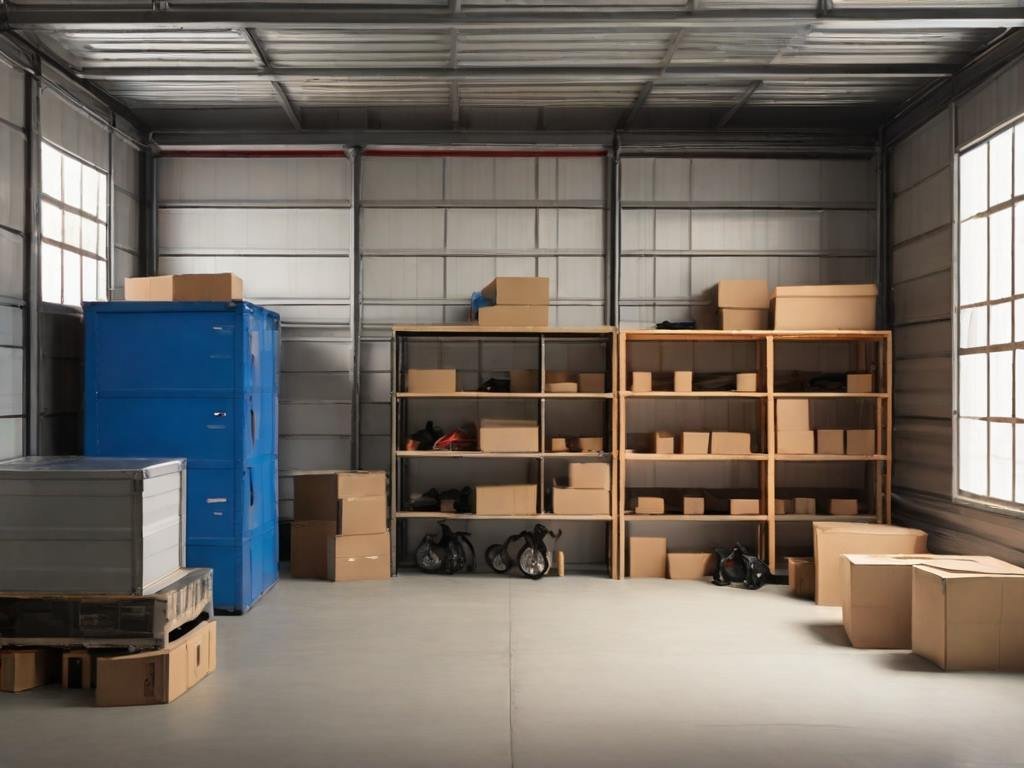Welcome to a comparison exploration between indoor and outdoor storage units, where we delve into the essential aspects of these two storage solutions.
In the realm of optimizing space and safeguarding possessions, the choice between indoor and outdoor storage units plays a pivotal role.
Whether you’re grappling with the decision for personal belongings or business inventory, understanding the difference between indoor vs outdoor storage units is crucial.
When it comes to finding the ideal storage solution, the decision between indoor and outdoor storage units can significantly impact the safety and condition of your belongings.
Before making a decision, it’s essential to be familiar with the key features that define indoor and outdoor storage units.
These features play a pivotal role in determining the suitability of each option for your storage needs.
Join us as we navigate the advantages and considerations of each option, helping you make an informed choice that aligns seamlessly with your storage needs.
Indoor Storage Units: Advantages and Considerations
Indoor storage provides a sheltered environment, typically within a building, offering protection against weather elements and enhanced security.
Advantages
Protection from Weather Elements
Indoor storage units shield your belongings from the unpredictable whims of weather. Rain, snow, or extreme temperatures won’t compromise the condition of your items, ensuring they remain in optimal shape.
Indoor storage acts as a fortress, safeguarding your possessions from the elements and preserving their longevity.
Climate Control Benefits
One significant perk of indoor storage is climate control. Temperature and humidity are regulated, preventing the adverse effects of extreme weather conditions on sensitive items such as wooden furniture, electronics, or delicate fabrics.
Climate-controlled indoor storage provides a controlled environment, ideal for items susceptible to temperature and humidity fluctuations.
Enhanced Security Features
Security is a top priority for indoor storage facilities. These units often boast advanced security measures, including surveillance cameras, access control systems, and on-site staff, providing peace of mind regarding the safety of your belongings.
Indoor storage units prioritize security, employing advanced measures to ensure your items are protected around the clock.
Considerations
Cost Implications
While the benefits of indoor storage are undeniable, they often come at a higher cost compared to outdoor storage. It’s crucial to evaluate your budget constraints and weigh them against the added protection and amenities provided by indoor units.
Consider your budget carefully; indoor storage may come at a higher cost, but the added protection may justify the expense.
Size and Space Availability
Indoor storage units may have limitations when it comes to size, and availability can be a factor, especially during peak seasons.
Ensure the chosen unit accommodates your belongings adequately, and check for availability beforehand.
Plan and secure a unit that meets your size requirements, taking into account potential limitations in availability.
Accessibility for Loading/Unloading
Accessibility might vary depending on the layout of the indoor storage facility. Ensure that the facility provides convenient access for loading and unloading your items, avoiding any potential logistical challenges.
Prioritize ease of access to streamline the loading and unloading process; choose a facility that facilitates seamless movement.
Outdoor Storage Units: Advantages and Considerations
outdoor storage involves units situated outside, providing cost-effectiveness and accessibility for larger items but with exposure to weather conditions.
Advantages
Cost-Effectiveness
Outdoor storage units are often more budget-friendly, making them an attractive option for those seeking economical solutions.
If cost is a significant factor, outdoor storage may align better with your financial considerations.
For those on a budget, outdoor storage units offer a cost-effective alternative without compromising on basic storage needs.
Accessibility for Larger Items
The open space provided by outdoor storage units makes them ideal for storing larger items, such as boats, RVs, or oversized furniture.
The lack of confined spaces allows for easier maneuvering and storage of bulkier possessions.
Need to store larger items? Outdoor storage units provide ample space, allowing hassle-free storage for oversized belongings.
Variety of Sizes Available
Outdoor storage facilities often offer a diverse range of unit sizes, catering to a wide array of storage needs.
Whether you’re storing a few items or an entire household, outdoor units can provide flexible options.
Enjoy the flexibility of choosing from various sizes; outdoor storage facilities offer a range of options to accommodate diverse storage requirements.
Considerations
Exposure to Weather Conditions
The primary drawback of outdoor storage is the exposure to weather conditions. While cost-effective, outdoor units may subject your belongings to rain, snow, or extreme temperatures, potentially affecting their condition over time.
Be mindful of the weather; outdoor storage units expose items to the elements, requiring extra care for weather-sensitive possessions.
Security Concerns
Security measures in outdoor storage facilities may not be as comprehensive as those in indoor facilities. Evaluate the security features in place to ensure your belongings are adequately protected from theft or vandalism.
Prioritize security while cost-effective, outdoor storage units may have fewer security measures, necessitating vigilant consideration.
Limited Climate Control
Unlike indoor storage, outdoor units lack climate control, making them less suitable for items sensitive to temperature and humidity.
Evaluate whether your belongings can withstand fluctuations in weather conditions.
Consider the nature of your stored items; outdoor storage lacks climate control, so ensure your possessions can withstand varying weather conditions.
Factors to Consider When Choosing an Outdoor or Indoor Storage Unit
Choosing between indoor and outdoor storage involves evaluating several factors to align with your specific needs.
Keep the following considerations in mind to make an informed decision:
Nature of Items to be Stored
Assess the types of items you plan to store. Are they sensitive to temperature changes? Do they require additional security?
Tailor your choice based on the specific needs of your belongings.
Consider the unique requirements of your items; choose indoor or outdoor storage based on the nature of the possessions you need to store.
Budget Considerations
Your budget plays a significant role in determining the type of storage unit you can afford. Balance your financial constraints with the level of protection and convenience offered by each option.
Strike a balance; weigh the cost-effectiveness of outdoor storage against the added protection and amenities provided by indoor units.
Duration of Storage Needs
The duration for which you plan to store your items can influence your choice. For short-term storage, cost-effectiveness might be a priority, while long-term storage may warrant the added protection of indoor units.
Tailor your choice to the duration of storage; short-term needs may prioritize cost-effectiveness, while long-term storage may lean towards enhanced protection.
Location and Convenience
Consider the location of the storage facility and how convenient it is for you to access it. Proximity and ease of access can significantly impact the practicality of your chosen storage solution.
Prioritize convenience; choose a storage facility that is conveniently located and easily accessible to simplify your storage experience.
Tips for Maximizing Storage Efficiency
Efficient storage isn’t just about finding the right unit; it’s also about how you organize and utilize the available space.
Here are some practical tips to ensure you make the most of your chosen storage solution.
Organization Strategies
Efficient organization is the key to maximizing storage space. Utilize shelves, bins, and labels to categorize and easily locate your items within the storage unit.
Optimize organization; implement shelves and bins to categorize items, ensuring efficient use of storage space and easy retrieval.
Proper Packing Techniques
Proper packing is essential to protect your items from potential damage. Use sturdy boxes, bubble wrap, and packing materials to ensure your belongings remain intact during storage.
Prioritize proper packing; safeguard your possessions by using sturdy boxes and appropriate packing materials to prevent damage during storage.
Utilizing Available Space Effectively
Make the most of the available space within your storage unit. Utilize vertical space by stacking items and strategically placing larger items to maximize the storage capacity.
Maximize available space; think vertically and strategically position items to optimize storage capacity within your chosen unit.
Wrap Up
Concluding, the choice between indoor vs outdoor storage units depends on various factors. Each plays a crucial role in determining the most suitable option for your needs.
Whether you prioritize weather protection, cost-effectiveness, or accessibility. Understanding the features and considerations of both indoor and outdoor storage is essential.
Considering the nature of your items, budget constraints, duration of storage and convenience can guide you towards making an informed decision.
For those seeking the utmost protection and climate control, indoor storage units may be the ideal choice.
Conversely, if budget considerations and accessibility are paramount, outdoor storage units offer a practical solution.
Freedomz Storage, a trusted provider in the industry, offers a range of storage solutions tailored to meet your specific requirements. Whether you choose indoor or outdoor storage, Freedomz Storage guides you to ensure a secure and convenient space for your valued possessions.
FAQS
Q: What are the experiences of storing a camper indoors vs outdoors according to Reddit users?
A: Reddit users may share diverse experiences, but commonly, indoor storage provides better protection, while outdoor storage is more economical.
Q: How does enclosed storage differ from indoor and outdoor options?
A: Enclosed storage can be either indoor or outdoor but typically refers to units with additional protection against the elements. It’s a middle ground between the two options.
Q: What are the key differences between public indoor and outdoor storage facilities?
A: Public indoor storage facilities often offer climate control and enhanced security, while outdoor facilities are more cost-effective but may lack climate control.
Q: Which is better for storing lumber, indoor or outdoor units?
A: Storing lumber outdoors can be cost-effective, but indoor storage protects it from weather-related damage.
The choice depends on the budget and the importance of keeping the lumber in optimal condition.
Q: Are all items suitable for indoor storage, or are there exceptions?
A: While many items benefit from indoor storage, it depends on the nature of the items. Delicate or temperature-sensitive items often fare better indoors, while outdoor storage is suitable for more robust items.
Q: What are the main differences between indoor and outdoor boat storage?
A: Indoor boat storage provides shelter and protection from the elements, ensuring the boat remains in better condition.
Outdoor storage is often more cost-effective but exposes the boat to weather conditions.

